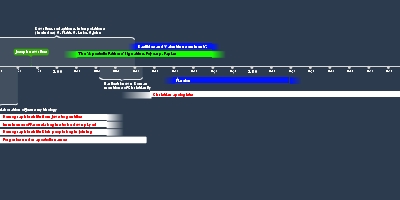jan 1, 177 - Celsus
Description:
177-178 CECelsus writes extensively against Christianity, perhaps incorporating an earlier Jewish polemic as one of his sources. His critique is both withering and incisive, and he suggests several alternative rationalist takes for Christian mythos and beliefs. He criticizes Christians for standing aloof from the world and forming illicit secret societies, shirking their civic duties, and most of all for the sedition of rejecting the gods of state, on such childish grounds that the statues themselves cannot be gods (which Celsus implies all but the most ignorant are well aware of). He rejects the Christian idea that demons are to be opposed, viewing demons as under God’s control and entities which must be propitiated in order to win favor for society at large. He claims that pagan priests are able to produce actual miracles (as opposed to those of the Christians). Ala Pseudo-Hippolytus, Celsus accuses Christians of purloining major parts of their doctrines and beliefs from other sources (e.g. getting their pacifism from Plato). Puts the Christians’ claimed visions of Jesus on par with other common visions of people from that era, including those of the god Asclepius.
Celsus attests that Christians are divided into numerous competing sects, describing gnostic, proto-orthodox, and Ebionite belief systems. He mentions Simonians (and a subset called Helenians, who worship Helene/Helenus), Marcellians (from Marcellina), Harpocratians (from…Salome??), followers of Martha, and Marcionites (from Marcion). Also claims that some Christians and Jews freely allegorize the “fables” of their religion (likely Old Testament content) or admit that they are silly inventions, while other Christians find the idea of the resurrection of the physical body a detestable and theologically nonsensical concept. Mentions a previously unknown gnostic work called A Heavenly Dialogue as describing gnostic cosmogony.
Added to timeline:
Date:
jan 1, 177
Now
~ 1849 years ago
